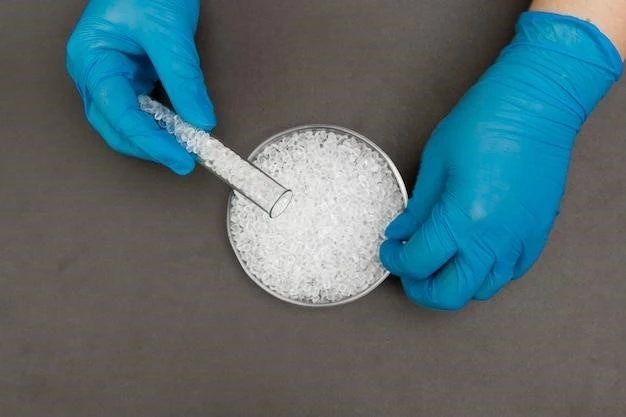Article Plan⁚ Uses of Rabeprazole Sodium
General Information about rabeprazole sodium delayed-release tablets. Medicines are sometimes prescribed for purposes other than those listed in a Medication Guide. Do not use rabeprazole sodium delayed-release tablets for a condition for which it was not prescribed.
Rabeprazole, sold under the brand name Aciphex, is a medication that decreases stomach acid. It is used to treat ulcers, promote healing of duodenal ulcers or erosive esophagitis, and prevent duodenal ulcers caused by H. pylori infection.
The active ingredient in Rabeprazole Sodium Delayed-Release Tablets is rabeprazole sodium, a proton pump inhibitor that decreases the amount of acid produced by the stomach.
Uses of Rabeprazole Sodium
Rabeprazole Sodium is a proton pump inhibitor (PPI) commonly used to treat ulcers, promote healing of duodenal ulcers or erosive esophagitis, and prevent duodenal ulcers caused by H. pylori infection. It is also utilized for Helicobacter pylori eradication to reduce the risk of duodenal ulcer recurrence in adults. Sold under the brand name Aciphex, Rabeprazole Sodium works by decreasing stomach acid production and is crucial in managing various gastrointestinal conditions.
While it may be prescribed off-label for conditions like NSAID-associated peptic ulcer disease or severe oesophagitis, it should always be used as directed by a healthcare professional. Rabeprazole Sodium should not be used for immediate relief of heartburn symptoms, and its effectiveness can be optimized when taken consistently as part of a treatment plan.
It is essential to follow the prescribed dosage and administration instructions for Rabeprazole Sodium to maximize its therapeutic benefits and minimize the risk of side effects. Consult your healthcare provider for personalized advice on how to use this medication effectively for your specific condition.
Side Effects of Rabeprazole Sodium
As with any medication, Rabeprazole Sodium may cause side effects. Common side effects may include headache, nausea, stomach pain, gas, sore throat, or back pain. If any of these side effects persist or worsen, contact your healthcare provider promptly.
Serious side effects of Rabeprazole Sodium that require immediate medical attention include severe stomach pain, ongoing diarrhea, persistent nausea or vomiting, signs of kidney problems (such as change in the amount of urine), muscle weakness, and signs of low magnesium levels (like irregular heartbeat or seizures).
Long-term use of Rabeprazole Sodium may increase the risk of bone fractures and fundic gland polyps. It’s crucial to discuss these potential risks with your doctor and seek regular follow-ups while on this medication.
If you experience any severe side effects or allergic reactions like rash, itching, swelling of the face or throat, or difficulty breathing, seek emergency medical care immediately. Report any adverse effects to the FDA’s MedWatch program for monitoring and reporting of side effects.
Remember to store Rabeprazole Sodium tablets in a cool, dry place, away from children. Follow proper storage and disposal instructions, and never share your medication with others.
Dosage Information for Rabeprazole Sodium
When using Rabeprazole Sodium, it’s crucial to follow the prescribed dosage carefully. The usual adult dose for treating ulcers is 20 milligrams once a day after the morning meal for up to 4 weeks. This dosage may be adjusted by your healthcare provider based on your specific condition.
For eradicating H. pylori infection and treating duodenal ulcer disease, a combination regimen with amoxicillin and clarithromycin may be prescribed. In this case, Rabeprazole Sodium is typically taken twice a day with the morning and evening meals for a specific duration as advised by your doctor.
For pediatric patients with GERD, doses are usually tailored to the individual’s age and circumstances. It’s essential to consult with a healthcare professional to determine the appropriate dose for children based on their specific needs.

Rabeprazole Sodium comes as delayed-release tablets designed to release the medication in the intestine to prevent degradation by stomach acids. The tablets should be swallowed whole with water, not split, chewed, or crushed.
If you miss a dose, take it as soon as you remember. However, if it’s close to the next dose, skip the missed one and resume your regular dosing schedule. Do not double dose to make up for a missed one.
Always adhere to your prescribed dosage regimen for Rabeprazole Sodium and consult your healthcare provider if you have any concerns or experience unusual symptoms while on this medication.
Drug Interactions with Rabeprazole Sodium
When taking Rabeprazole Sodium, it’s essential to be aware of potential drug interactions that could affect its effectiveness or lead to adverse effects. Inform your healthcare provider about all medications, supplements, and herbal products you are taking to avoid interactions.
Some medications that may interact with Rabeprazole Sodium include certain antibiotics like amoxicillin and clarithromycin when used together for H. pylori eradication. Additionally, substances such as iron supplements may impact the absorption of Rabeprazole Sodium and should be used with caution.
It’s important to discuss any new medications, including over-the-counter and herbal products, with your doctor before starting them while on Rabeprazole Sodium. Your healthcare provider can provide guidance on managing potential interactions and adjusting dosages if needed.
Remember to follow your healthcare provider’s recommendations closely to ensure the safe and effective use of Rabeprazole Sodium and to minimize the risk of harmful drug interactions. If you experience any unusual symptoms after starting a new medication, contact your healthcare provider promptly for further evaluation.
Patient Reviews of Rabeprazole Sodium
When considering patient reviews of Rabeprazole Sodium, it’s essential to understand that experiences may vary from person to person. Some individuals may report positive outcomes, such as relief from symptoms like heartburn, acid reflux, or ulcers, while others may encounter side effects or find the medication less effective.
Patients are advised to consult with their healthcare provider to discuss their specific condition and medical history before starting Rabeprazole Sodium. It’s important to follow the prescribed dosage and administration instructions carefully to optimize the benefits of the medication.
While patient reviews can offer insights into personal experiences with Rabeprazole Sodium, it’s crucial to prioritize professional medical advice and individualized treatment plans. If you have concerns or experience any unusual symptoms while taking this medication, contact your doctor for guidance and evaluation.
Remember that patient reviews are subjective and may not reflect the overall efficacy or safety of Rabeprazole Sodium for everyone. Your healthcare provider is the best source of information regarding the use of this medication based on your unique healthcare needs.
Precautions and Warnings for Rabeprazole Sodium
Before taking Rabeprazole Sodium, it’s crucial to inform your healthcare provider about any allergies to medications, especially proton pump inhibitors like rabeprazole. Discuss any current medications, supplements, or herbal products to prevent interactions that may affect its efficacy.
Individuals with conditions such as low magnesium, calcium, or potassium levels, hypoparathyroidism, vitamin B12 deficiency, osteoporosis, autoimmune diseases, or liver disease should disclose this information before starting Rabeprazole Sodium to ensure safe use.
Pregnant or breastfeeding individuals should consult their doctor before taking Rabeprazole Sodium to assess potential risks. Additionally, older adults over 70 years of age should discuss the benefits and precautions of using this medication with their healthcare provider.
It’s essential to adhere to the prescribed duration of treatment with Rabeprazole Sodium and not exceed the recommended dosage without medical supervision. Report any severe side effects or concerns to your healthcare provider promptly for appropriate guidance and evaluation.
Proper storage of Rabeprazole Sodium is crucial in maintaining its efficacy. Keep the medication in its original container, tightly closed, away from moisture and excess heat, and out of reach of children. If a serious side effect occurs, consider reporting it to the FDA’s MedWatch program for monitoring and further action.
Special Precautions and Dietary Instructions
When taking Rabeprazole Sodium, certain special precautions should be considered to ensure safe and effective use. Always inform your healthcare provider if you have allergies to PPIs, prior medical conditions like low magnesium or liver disease, or if you are pregnant, planning to become pregnant, or breastfeeding.
Discuss with your doctor all medications you are taking to prevent potential interactions that may impact the effectiveness of Rabeprazole Sodium. It’s essential to follow dosing instructions closely and avoid exceeding the prescribed duration without medical supervision to prevent adverse effects.
Regarding dietary instructions, maintain a regular and balanced diet while using Rabeprazole Sodium. Avoid excessive consumption of acidic or spicy foods that may trigger symptoms. However, no specific dietary restrictions are associated with this medication unless advised by your healthcare provider based on your individual health needs.
If you miss a dose, take it as soon as you remember but do not double dose. Store Rabeprazole Sodium in its original container, away from moisture and heat, and out of reach of children. Report any serious side effects promptly to your doctor and consider reaching out to the FDA’s MedWatch program to report adverse events.
Storage and Disposal Information
Proper storage of Rabeprazole Sodium is essential for maintaining its effectiveness and safety. Keep the medication in its original container, tightly closed, and away from excess heat and moisture. Store it at room temperature and avoid bathroom storage to prevent degradation.
Ensure Rabeprazole Sodium is stored out of reach of children to prevent accidental ingestion. If the medication is no longer needed or has expired, follow appropriate disposal guidelines. Do not flush medications down the toilet or pour them into a drain unless instructed to do so by disposal instructions.
If you have any leftover Rabeprazole Sodium, consult with your pharmacist or local waste disposal company for guidance on proper disposal methods. By disposing of medications correctly, you contribute to environmental protection and prevent misuse or accidental consumption.
Always prioritize safe storage and disposal practices to prevent harm to yourself, others, and the environment. If you have any concerns about the storage or handling process, seek advice from healthcare professionals or local authorities for guidance.
